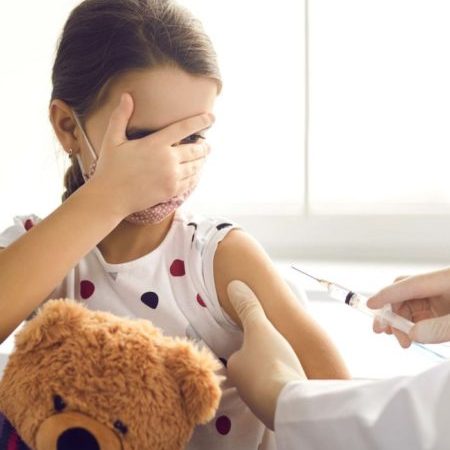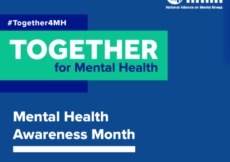November 11th, 2021
With kids 5 and older stepping right up to get the COVID-19 vaccine, this is a good time to remind parents that children are inherently opposed to any suggestion of putting a needle in an arm for any reason whatsoever, pandemic be damned. So as a public service to help make things go a bit easier for your child, for you, and for our wonderful and dedicated office staff, The PediaBlog reviews a few important Do’s and Don’ts to prevent needle phobia on shot day:
DO be firm in your decision. Dr. Nicole Baldwin explains that whether or not to get a shot is non-negotiable with a child:
Occasionally I will see parents waiver about getting their child’s vaccine done that day when the child starts to cry/melt down/beg to do it another day. While no parent wants to do something that is upsetting to their child, if you waiver and let the crying win, it just reinforces that if they cry/whine/beg enough, then they can get you to change your mind (and no one wants a child that whines to get their way).
DO talk to your children about the possibility of getting shots prior to the visit. Just be careful of when, what and how much you disclose:
This definitely needs to be individualized because some children with anxiety will fret over shots for DAYS before a visit if they think they will be getting them. For some children it may be better to say, “I’m not sure if you are due for any vaccines, but we will ask the doctor when we get there.”
Dr. Natasha Burgert suggests a different strategy to Kate Schweitzer: DON’T belabor the point.
“When parents talk too much about the shots, kids get more worried and fearful than if fewer words were spoken. So, keep it short and sweet. When shots are discussed, use honest language, make explanations brief, stay calm, keep a matter-of-fact attitude, and don’t project a personal concern about discomfort onto the kids.”
DON’T promise there will be NO shots when you visit the pediatrician “because inevitably the child IS due for a vaccine and then it causes the child to feel like they were lied to (and then erodes trust for future visits).”
Never promise there will be no shots. “It can lead to false reassurance and can threaten parental trust,” Dr. Burgert said. “Kids need to know the adults around them will be honest.”
Yes, shots hurt, so DO allow your child a moment to cry and be upset after their shot, advises Dr. Baldwin:
More than anything, some kids are just so scared about shots that their anxiety overcomes them, which manifests in tears. What they need at that moment is a comforting adult. Words like “you were so brave” or “I know it hurts, but it’s all done now and I’m so proud of you” will stop the tears MUCH faster than saying “stop crying” or “it doesn’t hurt that bad.”
What kids DON’T want to hear are lies from their parents. Neither do pediatricians:
DON’T TELL YOUR KIDS THAT SHOTS DON’T HURT. That is a lie. Shots DO hurt. Getting a shot consists of a needle breaking the skin. It’s not a pleasant sensation. When parents tell children that it “won’t hurt” and then it DOES hurt, that child feels like they were just lied to by the person they trust most in the world. Don’t get me wrong, it’s 100% OK to minimize their anxiety by saying things like “it’s just a pinch” or “it only hurts for a second” but PLEASE do not tell them that it doesn’t hurt at all.
Schweitzer discovers it’s best not to minimize the pain factor:
Instead of dismissing their fears or telling them it won’t hurt when it very well might, she suggested a different talking point. “I like to say: ‘Getting a shot can hurt a little, but it’s helping your body get stronger. Any pain you feel will go away quickly. I’ll be here to hold your hand, if you like. Or, you can sit at the exam table by yourself. Which would you like to do?’”
DON’T threaten a shot for bad behavior:
“There are few phrases more frustrating to a pediatrician than parents who say, ‘If you don’t behave, the doctor is going to give you a shot,’” Dr. Burgert said. It happens more than you’d expect, and this statement simply encourages your child to associate shots with punishment. “Plus, associating any medical intervention as a consequence of behavior sets kids up for mistrust of the medical system.”
Threatening a shot for bad behavior sets up the pediatrician as the bad guy, which also bugs Dr. Baldwin:
I can’t begin to tell you how many times I hear parents say “If you don’t sit still for the doctor, you’re going to get a shot.” Ummmm – no. If they are due for a vaccine, they are going to get a shot whether they sit still or not and if they AREN’T due for a vaccine, they’re NOT going to get a shot no matter how they behave. Nine times out of ten this backfires BIG TIME for parents (either the kid is great but still gets a shot so they don’t believe the parent in the future, OR the kid is terrible but doesn’t get a shot so that just reinforces the bad behavior). So please, choose something else as a discipline tactic. This one just doesn’t work.
On behalf of all our hardworking and caring medical assistants and nurses, PLEASE DON’T villify the person giving the shots:
My medical assistants are some of the most caring people I know. They DON’T enjoy holding kids down or seeing them cry when they give vaccines. They give shots because vaccines keep kids healthy. So no more “here comes the mean lady with the shots” talk – instead talk about how vaccines help protect us from bad diseases and keep us healthy.
Pediatricians everywhere have detected enthusiasm from parents and kids for the COVID-19 vaccine recently approved for kids as young as 5 years old:
When it comes to the COVID vaccine, Dr. Burgert thinks many parents will be pleasantly surprised at their child’s eagerness to get the jab considering how the pandemic has affected their lives — from school closures to canceled gatherings and delays in sports and clubs — for so long. “I’ve never seen so many kids eager and willing to roll up their sleeves,” she said. “I hear, ‘I hate shots, Dr. Natasha. But I was excited to get this one.’”
Comments are closed.




































